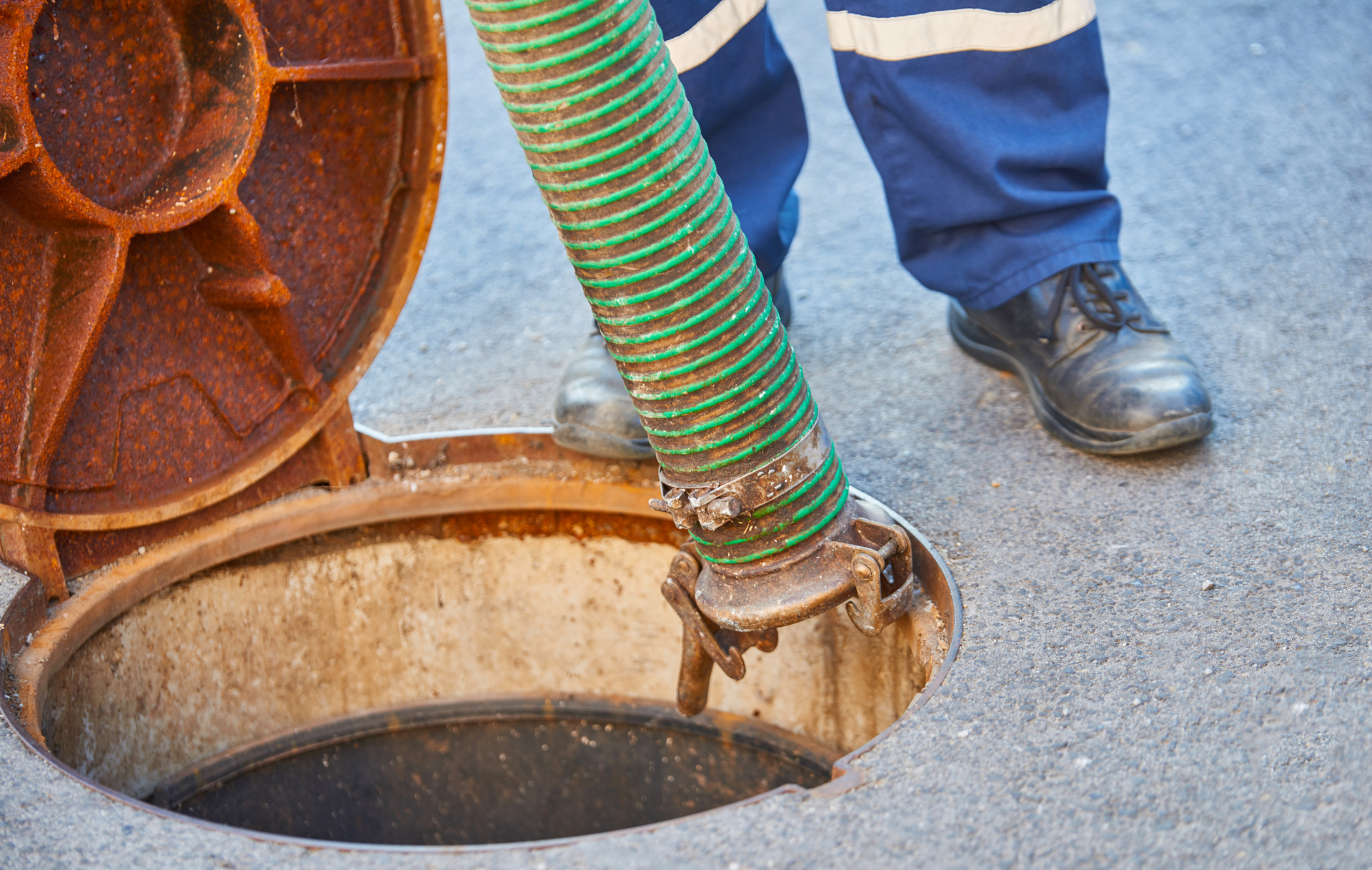Digging Deeper: Oxford Septic Services' Septic System Troubleshooting Secrets
November 16, 2023
Digging Deeper: Oxford Septic Services' Septic System Troubleshooting Secrets
In the charming town of Oxford, Mississippi, where historic architecture meets modern comfort, the last thing homeowners want to deal with is a septic system problem. Yet, as any homeowner knows, septic system issues can arise unexpectedly and disrupt daily life. That's where Oxford Septic Services comes into play. These seasoned professionals possess a wealth of experience and expertise in troubleshooting complex septic system problems. In this extensive guide, we'll delve into their troubleshooting secrets, unveiling how they diagnose and resolve even the most perplexing issues.
Understanding the Complexity of Septic Systems
Septic systems are intricate underground wastewater treatment setups, consisting of various components, such as septic tanks, drain fields, pipes, and more. While they work efficiently most of the time, issues can arise due to several factors:
Age: Older systems may experience wear and tear, leading to problems.
Tree Roots: Tree roots can infiltrate pipes, causing blockages and damage.
Overloading: Excessive water usage or the introduction of non-septic-safe items can overload the system.
Poor Maintenance: Neglected maintenance can lead to issues like tank buildup or component deterioration.
Environmental Factors: Heavy rainfall or rapid temperature changes can affect a septic system's performance.
Oxford Septic Services' Troubleshooting Approach
The professionals at Oxford Septic Services follow a systematic approach to troubleshoot and resolve septic system problems. Here's an inside look at their process:
1. Initial Assessment
When homeowners contact Oxford Septic Services with a septic system issue, the process begins with a thorough initial assessment. This includes discussing the problem with the homeowner to gather essential information. Understanding the symptoms, such as slow drains or foul odors, helps technicians narrow down the possible causes.
2. Visual Inspection
Next, the technicians conduct a visual inspection of the septic system components. They check the septic tank, inspect the drain field, and examine distribution boxes and pipes for any visible signs of damage or blockages. This step often provides valuable insights into the issue's location and severity.
3. Diagnostic Testing
Diagnostic testing plays a crucial role in troubleshooting. Technicians may perform various tests, such as:
Dye Tests: These tests involve adding colored dye to household drains to trace the flow of water and identify any leaks or drainage issues.
Pressure Tests: Pressure tests help assess the integrity of pipes and identify potential leaks or blockages.
Septic Tank Inspection: Opening the septic tank to check the levels of solids and scum can reveal whether the tank needs pumping.
4. Advanced Technology
Oxford Septic Services employs advanced technology to diagnose complex problems. Video camera inspections of pipes provide a clear view of any obstructions or damage deep within the system. This technology is invaluable for pinpointing issues without costly and invasive excavation.
5. Comprehensive Analysis
After gathering data from the initial assessment, visual inspection, and diagnostic tests, technicians perform a comprehensive analysis. They combine their findings to develop a clear understanding of the problem's root cause. This step is crucial for developing an effective troubleshooting plan.
6. Tailored Solutions
Once the issue is identified, Oxford Septic Services crafts tailored solutions. These may include:
Repairs: Fixing damaged components, such as pipes or septic tanks.
Pumping: If the septic tank is full or overflowing, pumping is necessary to restore proper functionality.
Root Removal: In cases of tree root infiltration, technicians remove roots and take measures to prevent future intrusions.
Drain Field Restoration: For drain field issues, restoration techniques may be employed to improve drainage.
Regular Maintenance: Advising homeowners on proper septic system maintenance to prevent future problems.
7. Transparent Communication
Throughout the troubleshooting process, Oxford Septic Services maintains transparent communication with homeowners. They explain the issue, the proposed solution, and the associated costs. This open dialogue ensures that homeowners are informed and comfortable with the chosen course of action.
The Importance of Professional Troubleshooting
While some homeowners may attempt DIY troubleshooting, it's important to highlight the advantages of hiring professionals like Oxford Septic Services:
Expertise: Professionals have extensive knowledge and experience, allowing them to quickly and accurately diagnose issues.
Advanced Equipment: They use cutting-edge tools and technology for precise diagnostics.
Preventative Measures: Professionals not only fix the immediate problem but also provide guidance on avoiding future issues.
Time and Cost Efficiency: Professional troubleshooting can save homeowners time and money in the long run by resolving problems efficiently and effectively.
Conclusion
In the charming town of Oxford, Mississippi, where the preservation of historic beauty meets the demands of modern living, septic system issues can disrupt daily life. Fortunately, Oxford Septic Services' team of experts possesses the knowledge, experience, and advanced tools to troubleshoot and resolve even the most complex problems. Their systematic approach, transparent communication, and tailored solutions make them the go-to choice for homeowners facing septic system woes. When it comes to septic system troubleshooting, Oxford Septic Services digs deeper to deliver the solutions homeowners need to restore peace and functionality to their homes.

Navigating the regulations surrounding septic systems is crucial for homeowners and businesses to ensure compliance, protect public health, and safeguard the environment. In this guide, Oxford Septic Services provides valuable insights into septic system regulations, offering clarity and guidance for property owners. Chapter 1: Regulatory Overview Oxford Septic Services provides an overview of the regulatory landscape governing septic systems, including local, state, and federal regulations. Understanding the regulatory framework is essential for property owners to comply with legal requirements and avoid potential fines or penalties. Chapter 2: Permitting Requirements Property owners may be required to obtain permits for the installation, repair, or modification of septic systems. Oxford Septic Services explains the permitting process, including the application requirements, approval procedures, and associated fees, to help property owners navigate the process successfully. Chapter 3: Inspection and Maintenance Requirements Many jurisdictions have inspection and maintenance requirements for septic systems to ensure proper functioning and prevent environmental contamination. Oxford Septic Services outlines these requirements, including the frequency of inspections, maintenance tasks, and reporting obligations, to help property owners fulfill their regulatory obligations. Chapter 4: Environmental Considerations Septic systems can impact groundwater quality, surface water contamination, and sensitive ecosystems if not properly maintained. Oxford Septic Services discusses the environmental considerations associated with septic systems, emphasizing the importance of responsible waste management practices to protect the environment and public health. Chapter 5: Compliance Assistance Complying with septic system regulations can be complex, but Oxford Septic Services offers assistance to property owners. Whether it's helping with permit applications, conducting inspections, or providing maintenance services, Oxford Septic Services ensures that property owners have the support they need to meet regulatory requirements. Chapter 6: Future Trends and Developments Regulations governing septic systems are subject to change as new technologies emerge and environmental concerns evolve. Oxford Septic Services discusses future trends and developments in septic system regulations, helping property owners stay informed and adapt to regulatory changes proactively. Conclusion: Understanding septic system regulations is essential for property owners to maintain compliance, protect public health, and preserve the environment. With insights from Oxford Septic Services, property owners can navigate regulatory requirements confidently and ensure the proper functioning of their septic systems for years to come.

Septic system failures can be costly, inconvenient, and hazardous to both property and health. Fortunately, with proper maintenance and proactive measures, many septic system failures can be prevented. In this guide, Oxford Septic Services shares valuable tips to help homeowners and businesses avoid septic system failures and ensure the long-term functionality of their systems. Chapter 1: Regular Maintenance Inspections Routine maintenance inspections are essential for identifying potential issues early and preventing costly repairs. Oxford Septic Services recommends scheduling regular inspections to assess the condition of your septic system and address any problems before they escalate. Chapter 2: Timely Septic Tank Pumping Regular septic tank pumping is crucial for removing accumulated solids and preventing clogs and backups. Oxford Septic Services advises homeowners to adhere to a consistent pumping schedule based on factors such as household size and usage to maintain optimal tank capacity. Chapter 3: Proper Waste Disposal Practices Improper disposal of household waste can overload septic systems and lead to system failures. Oxford Septic Services recommends avoiding flushing non-biodegradable items, grease, and chemicals down drains and toilets to prevent clogs and damage to the system. Chapter 4: Protecting the Drain Field The drain field plays a critical role in wastewater treatment and dispersal. To prevent drain field failure, Oxford Septic Services advises property owners to avoid parking vehicles or installing structures over the drain field and to maintain proper landscaping to prevent root intrusion. Chapter 5: Prompt Repairs and Maintenance Addressing minor issues promptly can prevent them from escalating into major septic system failures. Oxford Septic Services recommends contacting a professional at the first sign of trouble, such as slow drains, foul odors, or sewage backups, to prevent further damage. Chapter 6: Environmental Awareness Understanding the environmental impact of septic system failures can motivate property owners to prioritize proper maintenance and care. Oxford Septic Services emphasizes the importance of responsible waste management and eco-friendly practices to protect local water sources and ecosystems. Conclusion: By following these tips from Oxford Septic Services, homeowners and businesses can take proactive steps to prevent septic system failures and maintain the functionality of their systems for years to come. With regular maintenance, proper waste disposal practices, and prompt repairs, property owners can avoid costly and disruptive septic system failures and enjoy peace of mind knowing their systems are in good working order.
